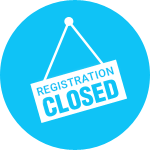This 2 day seminar will explore how to create and implement an efficient and effective internal audit program. Internal Audit is a required part of an effective quality system. More importantly, it is an incredibly powerful tool to identify areas of non-compliance. A well-designed audit program can be an effective tool in understanding, communicating, and reducing quality and compliance risk.
However, estimates indicate that up to 75% of companies conduct audits only because they are required to by regulation. Businesses often see internal audit as a non-value added activity leading to meaningless findings, bureaucracy, and cumbersome processes. And despite having an internal audit program, management is often surprised when they receive a 483, Warning Letter, or even a Consent Decree. A well planned audit program can reduce these risks.
In this seminar, we will discuss:- Regulatory Expectations
- How to develop and implement an efficient and effective audit program
- Common problems
- Red-flags that your program is not effective
- Risk Analysis techniques
- Audit Program Structure
- The auditing process - steps and tools
- Documentation and communication
- Linkages within your Quality System to ensure audits lead to effective solutions and lasting improvement
Why should you attend:
Continuous Improvement starts with awareness of issues and opportunities. And without an effective audit program, management lacks awareness of the issues within their quality system. Management is blind to the gaps in the quality system and the risk that poses for the company. Even worse, management is blind to the impact on product quality and risk to the customer. This webinar will highlight red-flags and ways to reduce compliance and quality risk.
Learning Objectives:
Using lecture, interactive discussion, and exercises, this seminar will provide tools and techniques for you to develop or improve your audit program. Students will come away with key concepts, practice in these concepts, and extensive course notes for future use and reference. This 2-day seminar will cover the following areas:
- Using a structured program to identify areas of risk leading to an effective audit strategy.
- How to develop a meaningful structure of audit, oversight, transparent communication, and escalation to management review.
- How to ensure your audit staff is well trained to proactively identify, communicate, and escalate issues.
- How a culture of quality and compliance can encourage clear and transparent communication of risk.
- How to prioritize, resource, and implement corrective actions.
- Techniques for monitoring and communicating risk and improvement over time.
- How to identify residual risk.
- Signs that your company culture is taking unnecessary compliance or quality risk.
- How to ensure management gets valuable information from your audit program.
- Tools for documenting audit observations and managing corrective and preventive actions.
- Roles and responsibilities.
Who will benefit:
- Quality Systems Specialists
- Document Control Specialists
- Quality and Compliance Specialists
- Auditors
- Internal Auditors
- Supplier Auditors
- Auditor Managers
- Supplier Auditors
- CAPA Specialists
- Quality/Compliance managers or directors for Medical Device companies
Agenda
Day 1 Schedule
Lecture 1:
Overview
Lecture 2:
Introductions
Lecture 3:
Regulatory expectations
Lecture 4:
Quality Systems requirements for medical devices
Lecture 5:
Types and goals of audits
Lecture 6:
Creating a program
- Goals
- Risk Analysis
- Audit schedule
- Oversight, communication, monitoring, and escalation
Lecture 7:
Linkages in your Quality System
- CAPA
- Metrics and monitoring
- Management Review
- What the FDA can look at
- Record keeping and documentation
Lecture 8:
Auditor qualifications and skills
Day 2 Schedule
Lecture 1:
The auditing process
- Preparation
- Planning
- Conducting
- Interviewing techniques
- Good documentation
- Following-up
- Monitoring progress
Lecture 2:
Focus on Supplier Auditing
Lecture 3:
Red Flags and Warning Signs
Lecture 4:
Best Practices
Speaker
Susanne Manz
Quality and Compliance Expert / Auditor for Medical Devices, Manz Consulting, Inc.Susanne Manz, MBA, MBB, RAC, CQA is an accomplished leader in the medical device industry with emphasis on quality, compliance, and Six Sigma. She has an extensive background in quality and compliance for medical devices from new product development, to operations, to post-market activities. While at industry leaders like GE, J&J, and Medtronic, Susanne worked in various world-wide roles including Executive Business Consultant, Worldwide Director of Quality Engineering, Worldwide Director of Design Quality, and Director of Corporate Compliance. She has traveled extensively throughout the world conducting audits and helping companies to understand and improve their Quality Management Systems. Susanne is a Presidential Scholar and has a BS in Biomedical Engineering and an MBA from the University of NM.
She earned her Black Belt and Master Black Belt certifications while at Johnson and Johnson. Susanne also holds Regulatory Affairs Certification (RAC) from RAPS and is a Certified Quality Auditor by the American Society for Quality. She has also served as a judge for the ASQ ITEA awards. Susanne has now established a consulting business, Manz Consulting LLC, with a mission to provide services to help medical device companies achieve world-class quality and compliance.









